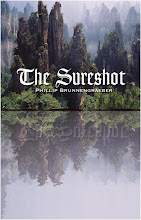
Over the Thanksgiving break I finished three books and I intend to post my review of all of them. The first is Black Rednecks and White Liberals by Thomas Sowell. I have read three Sowell titles now and loved all of them, though there is some tendency to repeat the same theme. For instance in Conquest and Culture’s he discussed slavery in his chapter about Africa, and again had a chapter devoted to slavery in this book. However, the chapter in BR&WL was much more thorough. I was especially interested in the chapter on Black Education because I myself will soon be a high school teacher. It confirmed what many people have suggested, that in order to have success teaching children in poverty or “at risk” or whatever we are supposed to call them according to the politically correct police, one must have high expectations and require hard work. This makes perfect sense. If children in inner city schools are in fact behind those in suburban areas, how can they close the gap unless they work hard? Some might argue that it is not their fault and so it is not fair to make them work harder than children who’s parents pay for tutoring etc. but the fact remains that they are behind and are not likely to catch up by any amount of praising or complaining.
Besides this chapter I felt that the chapter about “middleman minorities” was very interesting. Sowell made the case that there are many “Jews” in the sense that there are other examples of minorities who filled the role that Jews did in Europe and even the United States. He cited Chinese in Southeast Asia and Indonesia, Lebanese in northern Africa and Armenians in Turkey. All of these he claimed and supported, are minority peoples who were often on the margins of the parent society, but that achieved success in spite of disadvantages they faced. It was a strong argument.
The main chapter and theme of course is that the “black” culture that we find in the United States today and which is often celebrated by not only some blacks, but often liberal elites, is not the result of culture brought from Africa, but rather culture brought from areas of England by white settlers. He argues that it is the “redneck” culture that has found its way into “black” culture originating from the south by osmosis. Sowell cites many examples of people from the North traveling South in the Anti-bellum period, who noted the “redneck” culture and its characteristics. He quotes such scholars or W.E.B. Dubois who held negative views of the Southern blacks. This is a very interesting argument which, in my mind, is not so much an indictment of African Americans today, than it is of the South in general.
I would recommend this book for its original point of view and sound scholarship. That is, Sowell does not simply make up arguments or claim special insight, but supports everything he writes with a mountain of citations and quotes. It is well written and offers much to ponder.
Besides this chapter I felt that the chapter about “middleman minorities” was very interesting. Sowell made the case that there are many “Jews” in the sense that there are other examples of minorities who filled the role that Jews did in Europe and even the United States. He cited Chinese in Southeast Asia and Indonesia, Lebanese in northern Africa and Armenians in Turkey. All of these he claimed and supported, are minority peoples who were often on the margins of the parent society, but that achieved success in spite of disadvantages they faced. It was a strong argument.
The main chapter and theme of course is that the “black” culture that we find in the United States today and which is often celebrated by not only some blacks, but often liberal elites, is not the result of culture brought from Africa, but rather culture brought from areas of England by white settlers. He argues that it is the “redneck” culture that has found its way into “black” culture originating from the south by osmosis. Sowell cites many examples of people from the North traveling South in the Anti-bellum period, who noted the “redneck” culture and its characteristics. He quotes such scholars or W.E.B. Dubois who held negative views of the Southern blacks. This is a very interesting argument which, in my mind, is not so much an indictment of African Americans today, than it is of the South in general.
I would recommend this book for its original point of view and sound scholarship. That is, Sowell does not simply make up arguments or claim special insight, but supports everything he writes with a mountain of citations and quotes. It is well written and offers much to ponder.


No comments:
Post a Comment